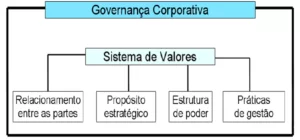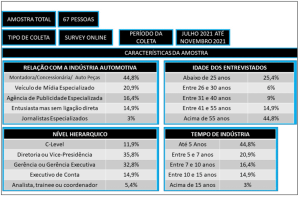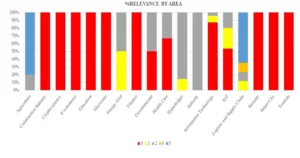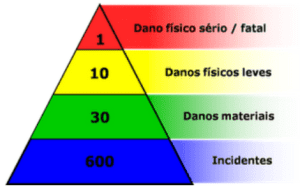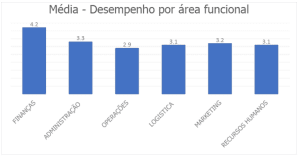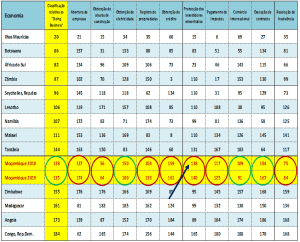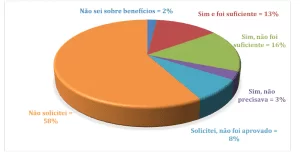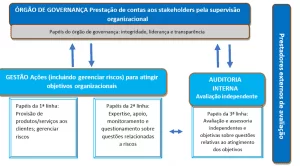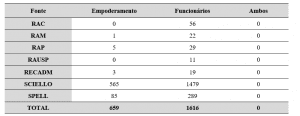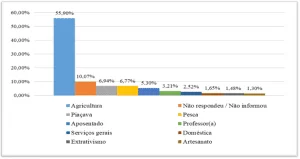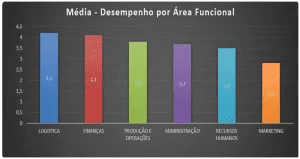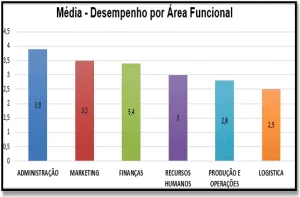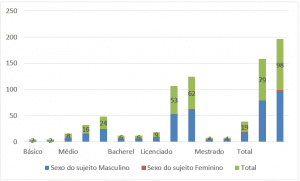ORIGINAL ARTICLE
OLIVEIRA, Michel de Jesus [1], MARIA, Herventon Francisco de Assis [2]
OLIVEIRA, Michel de Jesus. MARIA, Herventon Francisco de Assis. Planning Efficiency in Public Works. Revista Científica Multidisciplinar Núcleo do Conhecimento. Year 06, Ed. 02, Vol. 09, pp. 148-165. February 2021. ISSN: 2448-0959, Access Link: https://www.nucleodoconhecimento.com.br/business-administration/planning-efficiency
ABSTRACT
Planning for an enterprise, in the public sphere, can be a facilitator for achieving efficiency and productivity in the enterprise, situations that do not always occur in the day-to-day of the country, since it is projects in the public sector, it is noted that the possibilities of fraud and situations of great delays are a constant, so the planning is relevant to avoid and predict situations that may cause a productive inefficiency. Given the contextualization above, the study is based on the following question: What is the relevance of planning for public works? When is planning in public works considered efficient? The general objective of the study was: to analyze the importance of planning for the efficiency of public works. The accomplishment of the study is important and is justified by the fact that planning in public works is one of the most relevant activities and functions of a work, because it demonstrates the objectives of the enterprise, which are often not clearly identified. Through exploratory and descriptive bibliographic research, it was noted that a project is considered efficient when it can be completed contemplating all its initial planning, the controls performed from its initial phase to the end, give the certainty that everything is going well and ensure the minimization of the impacts caused by the changes of course.
Keywords: Planning, Public Works, Efficiency in public works.
INTRODUCTION
This article has as its theme the planning of works from the public sphere, which in turn requires rigor in relation to the elaboration, mainly on the variables: time and cost, so that the execution happens within the expected and that adverse and unwanted situations do not occur. And even so, many professionals still do not care about the relevance of this stage, a fact that negatively affects in delays and budgets extrapolated, thus, mainly, in most public works and infrastructure in Brazil.
The study has as a problem the efficiency in construction works, since at various times, there is a culture of delay in the delivery of projects in Brazil, especially when talking about projects in the public sector (ALCANTARA, 2016).
Thus, with the realization of the planning, the managers of the work are able to possess a macro and real view of the enterprise, allowing the making of appropriate decisions throughout the execution of the project. Therefore, it is important that the professionals responsible for the construction phases, have knowledge about the particularities of the work and know how to manage tasks and pending issues, in an optimized and efficient way.
It is important to reflect on how planning in public civil construction can bring greater efficiency gain to control bodies. And, in this sense, it is noted that the work of guidance and audits a priori or concomitant to the execution of the works are much more effective than those carried out a posteriori, when the deviations have already occurred, often due to the lack of planning, and there is difficulty in recovering the damage to the herbal (ALCANTARA, 2016). Thus, it presents the question: What is the relevance of planning for public works? When is planning in public works considered efficient?
It is noteable, therefore, that the study is relevant for teachers and students, from the field of science, as well as to civil society, for addressing important issues for the field of construction and civil engineering, addressing aspects of planning and important steps related to it, such as: Planning of public works stages; efficiency in relation to the financial evolution of these works; as well as some public works procurement processes; ranging from the preparation of the notice; the bidding process, cost survey and measurements and inspection.
It should also be considered that the realization of the study is important and is justified by the fact that planning in public works is one of the most relevant activities and functions of a work, because it demonstrates the objectives of the enterprise, which are often not clearly identified; thus, it aims to reduce the uncertainties and risks of the enterprise, making it difficult, to the maximum, possibilities of reducing efficiency in implementation and management; therefore, planning becomes essential when considering the restricted budgets of public coffers (MAGALHÃES; MELLO; BANDEIRA, 2019).
Thus the factors: analysis of tenderin a bidding process, planning and cost budgeting, become tools that, when executed with zeal and criterion, can allow the project of work, efficiency and constructive quality of the enterprise (SILVA, 2018).
The general objective of the study was: to analyze the importance of planning for the efficiency of public works. And the specific objectives were: to analyze the hiring of public works; identify how the bidding process processes and preparation of notices occur; point out the relevance of the budget and physical-financial schedule in public works; relate the planning in public works and the measurements necessary to control the development of the enterprise.
It is expected that this research will be of great value for teachers, students and lovers of the theme.
METHODOLOGY
This is a research through the literature review method, with a qualitative approach, that is, of an interpretative nature, in which it was not intended to collect statistical data.
Because the theme is still little explored, the research can be considered exploratory, because the researcher tried as much as possible to exhaust the sources and possibilities of study on the subject.
In addition to books, electronic content was researched, in which we searched for scientific articles in databases with contents qualified by Capes, such as the Scientific Electronic Library (SCIELO), as well as scientific journals that address the subject, as well as works in dissertation formats and database theses of Higher Education Institutions, such as: USP, FGV, Unicamp, among others.And the key words used in the research were: planning; public works; efficiency in planning; management of public works and civil construction.
As an exclusion criterion, it is emphasized that we did not analyze contents that address planning works of the private initiative and contents that do not address at least one of the objectives listed in the study.
As the research has an exploratory character, and due to the small amount of specific contents on the subject, we also researched contents that address planning in works, which were not only in the public sphere.
It is emphasized that the research was developed in order to bring the researcher closer to the research problem and the objectives outlined, facilitating the synthesis and understanding of the theme in question.
THEORETICAL FOUNDATION
CONTRACTING OF PUBLIC WORKS
Before an approach on the contracting of public works, it is relevant to affirm the legal concept, legitimized in Law No. 8,666/1993, citing that,
[…] the work is all construction, renovation, manufacture, recovery or expansion carried out by direct or indirect execution and service, characterized as any activity intended to obtain a certain utility of interest to administration, such as: demolition, repair, installation, assembly, operation, conservation, repair, adaptation, maintenance, transportation, rental of goods, advertising, insurance or professional technical work (BRASIL, 1993, LEI 8.666, Article 6).
The act of performing the contract of works in the public sphere needs to comply with the rules and administrative procedures that, in turn, are directly related to Constitutional Principles, as demonstrated by Article 37 of the Federal Constitution, when measuring that the Public Manager (PM), needs to be based on important values, which are part of the principles of public administration, that is: Legality , Impersonality, Morality, Advertising and Efficiency (MAGALHAES; MELLO; BANDEIRA, 2019).
And in order to better understand the contracting of such works, it is necessary to analyze their steps that will be explained below.
BIDDING PROCESS
For this contracting of works in the public sphere to occur, the bidding process is necessary. It must also be considered that the bidding phase is not limited to a simple stage of the process, but one of the ways to prepare the proposals for the work in question.
The Bidding Process for Public Works presents some steps, which can be schematized as shown in Figure 1, as follows:
Figure 1 – Phases of the bidding process.
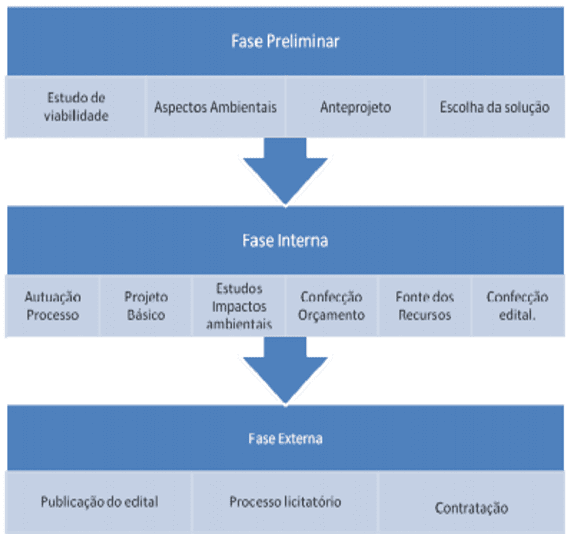
The process of contracting public works, as shown in Figure 1, occurs in three phases: Internal, External and Contractual, in which the first, is related as a set of preliminary measures that must be adopted by the body responsible for the event, before the publication of the Convocation Act, stipulated in notice (CARVALHO; PAULA; GONÇALVES, 2017).
Thus, it is necessary that initially and before the internal phase, there is a preliminary stage, where it is necessary to create a complete basic project, to regularize the enterprise, obtaining environmental licenses, at this stage an estimate is made about the definition of the value of the enterprise, then the notice is prepared, then the adoption of the corresponding process and the indication of the budget resources to pay for expenses (CARVALHO; PAULA; GONÇALVES, 2017).
Thus, as in the private sector, when the execution of a public work is decided, it is necessary that studies and analyses be carried out, in a preliminary way to the bidding process, in order to facilitate decision-making.At that moment, the planning of the acts of the contracting process and the knowledge of the legislation that regulates, become fundamental for the contract to occur satisfactorily (CALDEIRA, 2015).
Finishing the analysis of Figure 1, the external phase is noted, in which the selection of the proposal takes place, with the choice of the best alternative, through the bidding process, understood as the analysis and description of the operation of the works (MAGALHAES; MELLO; BANDEIRA, 2018). Thus, when deciding to carry out an undertaking, it is necessary to elaborate a series of studies and analyses that will facilitate decision-making in order to select the most interesting proposal.
EDICT
The notice mentions criteria for participation and acceptance of the proposals of interested parties and mentions various information, such as: the object of the work, the deadlines for bidding, the execution of services and payment model (LIMA, 2019). So it will be considered,
[…] before analyzing prices, however, the Public Administration needs to enable bidders, that is, verify that companies meet the requested prerequisites. To this end, it assesses the documents, the validity of the certificates and indications of fraud. (SOUZA NETO; OLIVEIRA, 2017).
The notice is important for the realization of the contracting of the public work, because it contains rules and criteria for participation and acceptance of the proposals of those interested in the project and relates various data and information, such as: the object of the work, the deadlines of bidding, the execution of services and forms of payment (SOUZA NETO; OLIVEIRA, 2017).
Briefly, the notice contains the following information, as shown in table 1 below.
Table 1 – Contents required in a Public Works Notice.
| Object | Specific in which locations the works occur, as well as the existence of Descriptive Memorial, Planning, Spreadsheets and Physical-Financial Schedule, records accessory to the notice; |
| Deadlines | Indicates the time for the realization of the project, pointing out when the work is started and how long it is to be delivered; |
| Payments: | Amounts stipulated and determined for each contract. They vary from contract to contract; |
| Participation | It guides who will participate in the execution of the project. They can occur in several ways. This participation may be part of the bidding, provided that they are legally constituted, in the field of performance of the object. |
Source – Lima (2019).
As mentioned in Table 1, it is contained in the notice that data and information are contained that mention criteria and requirements for participation in what is relevant in the analysis of the proposals. Thus, according to Santos (s.d), this document needs to offer conditions and forms of prices of materials and resources to be used, always aiming at an equal criterion of possibility of participation among construction companies (LIMA, 2019).
BUDGET AND PHYSICAL-FINANCIAL SCHEDULE IN PUBLIC WORKS
It is important to consider the importance of planning deadlines and costs for efficiency in the execution of a work, since the act of planning can be considered as one of the most relevant phases of the enterprise. Thus, within the bidding, an analytical definition of unit costs is necessary, detailed with the description of the service, its unit of measure, quantity to be executed, cost or unit price and total cost or price (CHIARELLI; CHEROBIM, 2009).
The budget of the enterprise is important for the efficiency of a planning, because it mentions the highest degree of accuracy possible the value of the project. Thus, it is noted that when there is cost planning, the possibility of distorted analyses tends to reduce, or even be eliminated (SANTOS; STARLING; ANDERY, 2015).
In order to ensure efficiency to the planning of the work, it is necessary to elaborate and analyze the physical-financial schedule, which, in turn, allows those involved in the project, to better manage the project, associating the costs of the work with the deadlines demanded (PIRES, 2014). The accuracy of unit costs is very important,
[…] the preparation of a precise budget, based on the unit costs of the services to be implemented and with an appropriate degree of accuracy, will contribute decisively to the successful procurement. And in order to constitute a technical element that requires specific knowledge, budgets must be made by engineering/architecture professionals (PIRES, 2014, p. 56).
Law No. 5,194, promulgated in 1966, mentions in articles 13 and 14, regulates the exercise of the engineering, architecture and agronomy professions and offers us the following definitions,
Art. 13 – Studies, plans, projects, reports and any other engineering, architecture and agronomy work, whether public or private, may only be submitted to the judgment of the competent authorities and will only have legal value when their authors are qualified professionals in accordance with this Law […] Art.14 – In graphic works, specifications, budgets, opinions, reports and judicial or administrative acts, it is mandatory , in addition to the signature, preceded by the name of the company, company, institution or firm to which they are interested, the explicit mention of the title of the trader who subscribes to them and the number of the portfolio referred to in Art. 56 (BRASIL, 1966).
Law No. 8,666, promulgated in 1993, in its 7th article, item II, makes the following considerations, “[…] engineering works and services can only be tendered if there is a detailed budget in spreadsheets that express the composition of all their unit costs” (BRASIL, 1993).
Within a bidding process, an expeditious, substantiated budget based on average market values and parameters is not required. An analytical definition of unit costs is required, detailed with the description of the service, its unit of measure, quantity to be executed, cost or unit price, and total cost or price.
Point out,
[…] in accordance with the provisions of the National Diploma of Bids, the contractor should set a maximum limit value for the proposals provided by the companies interested in contracting with the Public Administration. Above this ceiling, proposals should be disqualified from the event (BRASIL, 1993).
As mentioned, the preparation of a physical-financial schedule, as well as the schedule are important because they allow a more efficient management of the work, because it expands the visualization in a maximized way of the project, faced time and costs. Thus, with budget planning and schedule, it is possible to visualize the financial disbursements, as well as the period necessary for the performance of the work, so these tools become indicators for the manager to analyze and change his planning.
PLANNING IN PUBLIC WORKS
The planning of works has a preventive character, since it carries out a survey of risks, non-conformities, as well as a survey of negative (weaknesses and vulnerabilities) and positive points (which in fact occurred according to the desired deadline and quality, without leaving the planned cost) the construction of the project. Thus, the act of planning requires a professional responsible for the function, due to the need to prepare several studies and calculations to assess under what circumstances the construction of the enterprise; thus, aspects such as deadline, notice and budget [contained in the physical-financial schedule] need to be analyzed, always taking into account the internal policies involved and the laws in force in the region where the work will take place (BRANDALISE, 2017).
With detailed planning, and when analyzing the physical-financial schedule, the team responsible for the work is able to have a macro and real view of the work, allowing the proper decision-making, throughout the execution of the project. Therefore, it is important that the professionals responsible for the planning phases, have knowledge about the particularities of the work and know how to manage tasks and pending issues, in an optimized and efficient way (CARVALHO; PAULA; GONÇALVES, 2017).
It should be considered that delays that, in addition to affecting the cost of the enterprise, generate loss of competitiveness on the part of companies. And within this reality, planning arises, again, as a powerful management tool that aims to anticipate future situations, whose main focus is to avoid delays and high costs (ALBUQUERQUE et al., 2016).
The planning of public works takes place in the phase prior to the preparation of the notice, in which decisions about the works are made and stipulated, always aiming to anticipate undesirable future situations, especially in relation to costs and deadlines. Thus it needs to be established, in advance and with the information available at the beginning of the project, what is the best sequence of activities to be followed and the best way to use resources, so that there is no interruption in production and can perform the tasks in the best possible way. It should be realized and thought of in a type of scenario, whether optimistic, pessimistic or expected.
Thus, in order for a planning in public works to occur satisfactorily, it is necessary that it occurs efficiently, which in turn has the purpose, to analyze, identify and verify whether the resources mobilized in a given work, produced the results, effects and desired impacts and thus made the project achieve its objective; it is soon noted that the concept presented here is very similar to that of planning, demonstrating that not all planning work is efficient, but every efficient work was planned.
MEASUREMENT IN PUBLIC WORKS AS A WAY TO ANALYZE AND EFFECTIVENESS OF PLANNING
And in order to analyze the efficiency of planning in public works, measurements become necessary to verify and monitor the progress of each stage of the work, since they determine the performance and evolution of the execution performed by contractors and thus, are useful to be able to analyze whether a planning occurred satisfactorily (SILVA, 2011).
In the speeches of Ballard (1994 apud MAGALHAES et al., 2018), planning is understood as an important management tool. The measurements comcant the activities planned and carried out, reinforcing the idea cited, Mourão (2016), says that the measurement can demonstrate delays, which in turn directly impacts the schedule stipulated for a given enterprise.
It is important to mention that the control of the planned schedule is relevant, once in case of time exceeded, it is necessary that companies increase the labor, raising new work fronts, a fact that will impact the increase in the cost, which may reduce the quality of the project, because the delay becomes so worrying that those responsible end up decreasing the quality of the project to finish the project in time , or close to what is stipulated in the schedule (ALCANTRA, 2016).
For Mourão (2016), the absence of planning and control of it, can directly impact on increased costs, in addition to customer dissatisfaction and when this reality is taken to the public sphere, it is noted that when setbacks occur, a rule view suggests that the project management performed by the construction companies is inadequate. The author also reports that the engineer responsible for the work has no previous contact with the project, a fact that prevents an analysis of the project, in the preventive purpose of setbacks and failures before the start of construction.
In the case of public works, measurement can become a more relevant task and even a challenge, since the company that wins the bid needs to present the measurements regularly, but it is up to the state agencies to monitor and monitor the veracity of the data presented (SOUZA NETO; OLIVEIRA, 2017).
RESULTS AND DISCUSSIONS
The discussion presented below is intended to bring researchers closer to the problem under study, in which he focused on debating the relevance of planning and its efficiency in public works.
In an analysis of civil construction in the public initiative, it should be considered that a work without planning, can have several problems, such as the absence of compliance with schedule, as well as an increase in costs in the work. And in the face of a reality in which the amount of unfinished or irregular public works, are a constant, in a situation of delays for months and even years, since in addition to the irregularity in the term, the conflict between budgeted and executed values is a constant.
In cases of works in the public sector, with problems in execution, Albuquerque et al. (2016) mention that one of the factors that can cause such a situation is the lack of planning, impacting on the waste of various resources, whether financial, productive and even human.
On the importance of public works planning, it is noted that it favors that the enterprise is executed within the expected and that adverse and unwanted situations occur. And even so, many professionals still do not care about the relevance of this stage, a fact that negatively affects in delays and extrapolated budgets, a fact that occurs mainly in most public works and infrastructure in Brazil (CALDEIRA, 2019). In this bias, it is emphasized that the support to control bodies, both internal and external, is essential to be able to assemble devices at all stages of the life cycle of a project and after its completion in order to ensure adequate planning and consequent final result and demonstrate, therefore, that there was good application of public resources (SOUZA NETO; OLIVEIRA, 2017).
It is noted that planning for an enterprise, in the public sphere, can be a facilitator for achieving efficiency and productivity in the enterprise, situations that do not always occur in the day-to-day of the country, since when it comes to projects in the public sector, it is noted that the possibility of fraud and situations of great delays are a constant, so the planning is relevant to avoid and predict situations that may cause a productive inefficiency (SANTOS , s.d).
In a construction construction the planning process needs to be elaborated and adjusted to the adversities that may occur, thus,
[…] replanning, [It is very important, because] demonstrates the possibility and availability of new information are available about the enterprise, enabling the progress of the work, therefore, planning is not a single process. Thus, it is noted the need to carry out planning and control of the work (measurements), in order to make a more efficient enterprise (PEÑA, 2008, p.15).
In order to understand improvements in the definitions of efficient planning in public works, it is necessary to analyze the definitions of table 2 below.
Table 2 – Planning Efficiency
| Author (year) | When planning is efficient |
| Ballard (1994) | When it is designed as a system, not restricting itself only to a schedule; with the realization of performance measurement and analysis and correction of planning failures; |
| Ballard and Howell (2004) | When it presents attainable goals, within a context with a programming focused on production and budget, considering the processes through which the deliveries of the scopes of work (contracts) should be carried out; |
| Laufer and Tucker (1987 apud MAGALHES, 2018) | when they are prepared with the elaboration of production methods; thus the planning of methods needs to occur prior to decision making regarding resources and deadlines. |
| Formoso (2001) | When you synchronize teams to maintain a continuous workflow. |
Source: Authors cited above.
Complementing the one contained in table 2 above, it should be considered that efficient planning requires control and measurement. And when the work is focused on the public sector, the demand may be even higher, since, according to the law of budget guidelines – LDO is essential in the good management of public money; it is therefore necessary that the budget requires planning as well as the deadline.
Construction works and services are important because they are directly related and related to the budget, producing indicators and quantitative data that are important for the management of any work (ALBUQUERQUE et al., 2016). Thus, interpreting the speeches of Albuquerque et al. (2016), planning combined with measurement is considered a fundamental = tools that help considerably in the control of a project. And they allow identifying and measuring the financial resources applied in the course and evolution of the schedule, facilitating payments of expenses and costs and a better control of expenses, allowing greater control and efficiency in the construction of any enterprise.
According to Magellan; Mello; Bandeira (2018), the steps that link the process of contracting the works, need a planning for them to be well executed; whose purpose is to promote the implementation of the public works management process. Therefore, management when efficient directly impacts the monitoring with greater rigor of the execution process of the work, as well as on the control of activities that were planned and are being performed.
The control is the mechanism that allows analyzing whether the deadlines are being met and the measurement, allows an analysis of the physical-financial schedule, informing the manager of the work, the financial performance of it over a certain period. It is also noted that planning alone without proper monitoring cannot be considered effective.
The management tools: planning and control are interdependent and cannot be carried out in isolation, since both, when applied adequately in the enterprise, are propelling springs for a guarantee of deadlines and costs, favoring compliance with the established in the descriptive memorial. It is also necessary to consider the relevance of the performance of measurements, in order to enable an analysis of the execution of the work schedule, in order to control the deadlines established in the contract, in order to achieve the expected results; thus, it is critical to certify ing efficiency in planning.
Therefore, it is noted that the control and monitoring of the execution of the work is a very important step, since it promotes a daily monitoring of the execution of services aiming at good results of productivity and costs, which favors a lot of support to the administration of the work. Therefore, to recognize the efficiency of a planning it is necessary to analyze the control is the set of activities that will lead us to an effective comparison between the effective and the planned, with the measures of framing the results in the total conjuncture assessed, in order not to allow deviations compared to the expected.
It is necessary to consider that efficiency is the optimized form of imputs, that is, supplies and methods necessary for the realization of a project, so that outputs are elaborated, that is, final product. This fact shows that being efficient requires competence, that is, the ability to perform things correctly, in an economical and most agile way possible (ALCANTARA, 2016).
Generally speaking, a production method is considered efficient when the necessary financial resources for a given production process is used; within this understanding it is observed that planning is an important tool in the management of works, because it favors the achievement of efficiency. Thus, it is emphasized that the planning, control and management of works favors and allows the engineer to identify and better know the conditions and place of work, facilitating the verification of critical points in which precautions should be taken, as well as pointing out variations between the actual cost of the work, the budgeted cost, promoting greater agility in decision making, among others (MAGALHES et al. , 2018).
FINAL CONSIDERATIONS
Planning for an enterprise, in the public sphere, can be a facilitator for achieving efficiency and productivity in the enterprise, situations that do not always occur in the day-to-day of the country, since these are projects in the public sector, it is noted that the possibility of fraud and situations of great delays are a constant, so it is relevant to avoid and predict situations that may cause a productive inefficiency.
The study allowed us to identify that planning in public works is one of the most relevant activities and functions of a work, because it demonstrates the objectives of the enterprise, which are often not clearly identified. Thus, a construction project in the public sphere is considered efficient when it can be completed contemplating all its initial planning, the controls performed from its initial phase to the closure, give the certainty that everything is going well and ensure the minimization of impacts caused by unforeseen events.
In general, all the discussion that permeates the planning in the construction of the public sector, allowed the authors to consider in a macro way the relevance of the planning, as a key part for the projects to be satisfactory. Thus, it is up to the construction managers to work together to eliminate or mitigate the problems that occur and are not few in public works, measuring and controlling all planned, so that efficiency in planning is identified.
Generally speaking, it is noted that the researcher was able to analyze the importance of planning for the efficiency of public works, thus, the general objective of the study was achieved.
REFERENCES
ALBUQUERQUE, F. A. Et al. Controladoria e eficiência no setor público. Revista Controle, 2016,13(2), 109-121.
ALCANTARA, Luiz Felippe Baptista. Atrasos de obras: Uma correlação com problemas no gerenciamento. 2016. Trabalho de conclusão de curso (Bacharelado em Engenharia Civil) – Universidade Tecnológica Federal do Paraná. Campo Mourão, 2016.
BRANDALISE, Diego. A Importância do Gerenciamento do Tempo em Projetos de Construção Civil. Rio de Janeiro Janeiro/2017. Trabalho apresentado ao curso MBA em Gerenciamento de Projetos. http://www.fgv.br/network/tcchandler.axd?TCCID=5693. Acesso em: 30/11/2020.
BRASIL. Constituição Federal de 1988. Promulgada em 5 de outubro de 1988. Disponível em <http://www.planalto.gov.br/ccivil_03/constituicao/constituição.htm>. Acesso em: 19/11/2020.
CALDEIRA, D. M. Diretrizes para o gerenciamento de riscos em contratos de obras públicas: estudo de caso da contratação integrada. 2015. Dissertação (Mestrado) – Faculdade de Tecnologia, Universidade de Brasília, Brasília, 2015. http://repositorio.unb.br/handle/10482/20423. Acesso em: 26/11/2020.
CARVALHO, Michele Tereza Marques; PAULA, Jean Marlo Pepino de; GONÇALVES, Pedro Henrique. Gerenciamento de Obras Públicas e as Políticas de Infraestrutura do Brasil Contemporâneo. Instituto de Pesquisa Econômica Aplicada – IPEA. Publicado em 2017. Disponível em: http://repositorio.ipea.gov.br/bitstream/11058/8555/1/Gerenciamento.pdf. Acesso em: 16/10/2020.
CHIARELLI, L.; CHEROBIM, A.P.M.S. Características de sistema de controle interno municipal para atuação reguladora e orientadora da gestão pública. Revista Interdisciplinar Científica Aplicada, 2009, Blumenau, v.3, n.1, p.24-42.
MAGALHES, R. M. et al. Gest. Prod., São Carlos, v. 25, n. 1, p. 44-55, 2018. Planejamento e controle de obras civis: estudo de caso múltiplo em construtoras no Rio de Janeiro. Disponível em: https://www.scielo.br/pdf/gp/v25n1/0104-530X-gp-0104-530X2079-15.pdf. Acesso em: 16/12/2020.
MAGALHAES, Rachel Madeira Magalhães; MELLO, Luiz Carlos Brasil de Brito; BANDEIRA, Renata Albergaria de Mello. Planejamento e controle de obras civis: estudo de caso múltiplo em construtoras no Rio de Janeiro. Gest. Prod., São Carlos, v. 25, n. 1, p. 44-55, 2018 http://dx.doi.org/10.1590/0104-530X2079-15. Acesso em: 16/12/2020.
LIMA, Tomás. Entenda como funciona a licitação para obras públicas no Brasil. 2019. Disponível em: https://www.sienge.com.br/blog/como-funciona-a-licitacao-para-obras-publicas-no-brasil/. Acesso em: 16/12/2020.
SANTOS, Henrique de Paula; STARLING, Cícero Murta Diniz; Andery, Paulo Roberto Pereira Andery. Um estudo sobre as causas de aumentos de custos e de prazos em obras de edificações públicas municipais. Ambient. constr. 15 v. 4.n. Porto Alegre Oct./Dec. 2015. Disponível em: http://dx.doi.org/10.1590/s1678-86212015000400048. Acesso em: 23/12/2020.
PEÑA, Carlos Rosano. Um Modelo de Avaliação da Eficiência da Administração Pública através do Método Análise Envoltória de Dados (DEA). Revista de Administração Contemporânea, Curitiba, Paraná, v. 12, n. 1, p. 83-106, 2008.
PIRES, Daniel Lage. Aplicação de técnicas de controle e planejamento em edificações. Universidade Federal de Minhas Gerais, 2014. Disponível em: http://pos.demc.ufmg.br/novocecc/trabalhos/pg3/113.pdf.Acesso em: 05/12/2020.
SOUZA NETO, Artur de; OLIVEIRA, Denis Renato de. Um olhar crítico sobre a eficiência do planejamento e da gestão na contratação de obras públicas. XX SEMEAD Seminários em Administração. 2017. Disponível em: http://login.semead.com.br/20semead/arquivos/1902.pdf. Acesso em: 11/11/2020.
SANTOS, Altair. Medição da obra vai muito além do uso da trena. S.d [sem data de publicação]. Disponível em: https://www.cimentoitambe.com.br/medicao-da-obra-vai-muito-alem-do-uso-da-trena/. Acesso em: 11/12/2020.
SILVA, Gilberto Gomes da. Controle na execução de obras públicas: pagamento de medição de obras. 2018. Disponível em: file:///C:/Users/7/Downloads/2018%20-%20Controle%20interno_obras%20pblicas_pagamento%20de%20medio%20de%20obras.pdf. Acesso em: 01/12/2020.
SILVA, Marize Santos Teixeira Carvalho. Planejamento e Controle de Obras. Salvador 2011. Universidade Federal da Bahia. Escola Politécnica. Colegiado do Curso de Engenharia Civil. Disponível em: http://www.gpsustentavel.ufba.br/downloads/Planejamento%20e%20Controle%20de%20Obras%20-%20Marize%20Silva.pdf. Acesso em: 10/12/2020.
[1] Postgraduate in Public Administration, Management and Finance, graduation in Administration.
[2] Advisor. PhD in Military Sciences.
Submitted: January, 2021.
Approved: February, 2021.

